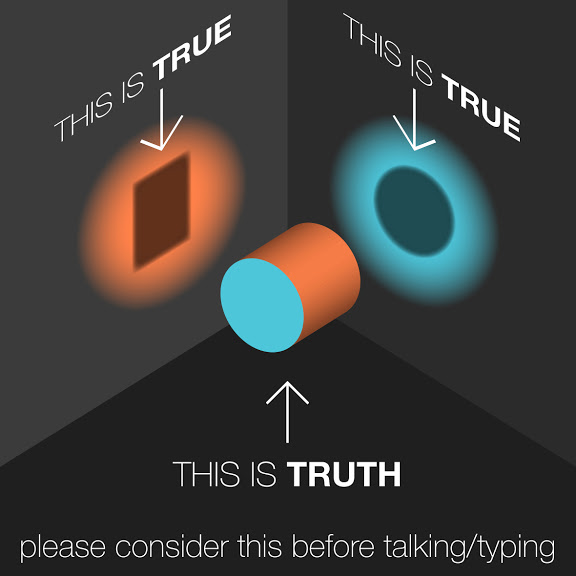In a nutshell, Ti-lead equals hard-headed data collection. In contrast to the Te-lead, the Ti-lead gets more bogged down in collecting data. It's serious business. Te-lead has a cognition for effecting a quick, immediate solution and successfully applying common sense practicality.
Ti-leads are looking to get the most fundamental truths (axioms) and then build knowledge from the ground up. See that, I just cracked the nutshell. In contrast, good old fashioned common sense trumps a more scientific approach for Te cognition. [
if I'm to contrast Ti-lead with Ni-lead, that's simple, because Ni-lead does not have a cognition or concern for objective, scientific truth but one's own rich, unconventional, highly nuanced inner world (Ni-lead annihilates objective reality). Ni/Te converts inner worlds into new modes of thought. Ni/Fe converts inner worlds into new modes of expression....in contrast to Ti and Ne, Ne-lead mistakes their own ideas and opinions as reality itself, you're more likely to get the 'you're out of touch with reality' disagreeing with a Ne-lead's opinions than you are disagreeing with a Ti-lead's opinions.]
Ti-dom is looking more for the unknowns and perpetually involved in looking for and identifying problems that go into the deeper "undercurrents" of an outward structure. Te-dom revolves entirely around external order/functionality and presents a nice cognition for problems and solutions distinctly found "above ground" -- practical stuff that the others are too impractical or undisciplined to spot or care about.
No discussion proceeds without the best go-to: Jung.
In this landmark work, the Gulenko has convincingly made the case that socionics, like MBTI, is rooted in Jung. Jung writes of Te-dom, as follows:
When thinking holds prior place among the psychological functions, i.e., when the life of an individual is mainly governed by reflective thinking so that every important action proceeds, or is intended to proceed, from intellectually considered motives, we may fairly call this a thinking type.
Their sanction is: the ends justify the means.
"Oughts" and "Musts" bulk large in this programme. If the formula is broad enough, this type may play a very useful role in social life as a reformer or public prosecutor or purifier of conscious, or as the proponent of important innovations. But the more rigid the formula, the more he develops into a martinet, a quibbler and a prig, who would like to force himself and others into one mould.
desired action proceeds from reflection, Te is a forceful function.
Te-lead values common sense as a compass for the implementation of solutions....it's not trying to mine data for first principles. Managers and taskmasters abound, the problem-solving cognition occurs in identifying hazards in the areas of behavior, timing, work, pace, action..."You're supposed to be doing this" "this needs to be coming out faster". These imperatives also plays out in the domain of behavior.
Having established the only valid breakdown for every enneagram type, wing and stack, I would point out that Te-dom has overtones of 1ishness. Type 1's fundamental rigidity parses the world out into black and white. For example, in the case of a 6w5 sp/so like Bill O'reilly, we see that the exaggerated againstness of the contraphobic fear type on behalf of the little guy towards abuses of power when combined with the oughts and shoulds of the Te-dom cognition makes for a tyrannical crusader. [
In contrast to type 1, though, a Te-dom does not make for an ideological fanatic (1w9) or a conscientious do-gooder (1w2).]
Fire Marshall Bill is an insanely great fictional caricature of Te-dom cognition known. LSE, for example, can typically effect quick solutions because Ti-ignoring makes general criteria and "golden rules" a desirable trump card to yank out of their back pocket when they want to impose order.
That's not say Te-leads don't ever gravitate towards hard sciences or that Ti-leads don't ever gravitate towards enterprising ventures or leadership positions. If you're contrasting a Ti-lead business owner with a Te-lead business owner, the Ti-lead is going to have a grasp on every single detail of their business (that's why big picture jobs aren't as typical for Ti-leads; they specialize more often). Te-lead has a better cognition for the business end of things but doesn't take in every detail so will be less effective in more unconventional scenarios. Ti-lead cognition takes in an abundance of detail.
As to the OP this is blatantly wrong and a similar mistake as made by people who tell a story about Fi having to do with morals:
Te, Ti, Fi are not value judgments....it does not fall into some moral domain. Socionic functions are information processors. Ti and Te are information processors. That means value neutral. The butchering of any socionics function into a conflation with morality must end.




 Reply With Quote
Reply With Quote


